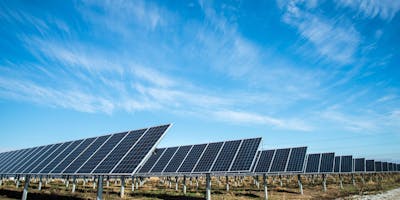You must login before you can post a comment.
- 👔
- 🍔
Legitimating power: The governance of Portuguese solar energy
Science & Technology
Increasing recognition of the irrefutable urgency to address the global climate challenge is driving mitigation efforts to decarbonise. Countries are setting targets, technological innovation is making renewable energy sources competitive, and fossil fuel actors are leveraging their incumbent privilege and political reach to modulate energy transitions. As techno-economic issues are rapidly resolved in favour of sources such as solar energy, governance puzzles dominate the research frontier. Who makes key decisions about decarbonisation and why, who reaps the consequent benefits and who bears the burden? This talk takes a probing look at both energy justice and socio-technical transitions to a more low-carbon and equitable societal future. To study the contingencies that determine these outcomes, the talk will trace how discrete acts validate specific transition trajectories through discursive, bureaucratic, technocratic and financial practices of legitimation. The setting, Portugal, is tucked away in southwestern Europe, leads on wind and hydro power and recently set a world record with its solar auctions. With Europe’s best solar irradiation, Portugal’s big solar push has only just kicked off. In explaining how this is unfolding and why, the talk will investigate key questions that this spunky country’s ambitious decarbonisation plans must address to simultaneously enhance social equity.
At a time where many feel that existing political structures and institutions are insufficient for governing the complexities of modern-day life, there has been a proliferation of civic demands for new forms of democracy, rooted in material infrastructures such as energy, food and water. These calls have coincided with significant changes to these infrastructures. Renewable forms of energy in particular have the potential to both decarbonise and decentralise energy infrastructures and their ownership. However, while activists and progressive politicians use the language of democracy to advocate for a system that is both low-carbon and democratically controlled, there remains a lack of clarity around what a democratic energy system is or does.
This seminar will explore some of the implications of emergent (socio)material conceptualisations of democracy. Adopting an assemblage-lens, I analyse how multiple heterogeneous material and non-material connections are made and remade in the process of enacting energy infrastructures. Based on fieldwork with energy cooperatives and other civic energy groups in Scotland, I explore the inherent tensions within these processes, and the fragile, contingent and contested outcomes that emerge. I conclude by discussing whether the diversity of these emergent infrastructures challenge or strengthen the democratic claims made for them.
This talk will be followed by a networking reception.
Please be aware that this event will be filmed.
For access information please click here.
Speakers
Bregje van Veelen is a researcher in the Department of Geography at Durham University. Her research is concerned with the intersection of energy and society, with an emphasis on the socio-material dynamics of low-carbon transitions. Her work has analysed the role of non-state actors in addressing the socio-material constitution of carbon lock-in, and the creation of new techniques and spaces of climate governance. The first way she currently explores these is through her work on the project REINVENT (Realising Innovation Transitions for Decarbonisation), where she analyses governance innovations for decarbonisation in ‘hard to reach’ sectors of the economy. The second way in which she explores these themes is through examining the intersection between democratic governance and material infrastructures. In this work, she integrates political theory into the field of energy geographies to study the new governance spaces created by, and for, sub-national energy actors, particularly civil society groups. Her work has been published in disciplinary and interdisciplinary journals across the social sciences, including Environment and Planning C, Progress in Human Geography, Environmental Politics and Sociologia Ruralis. A full profile can be found here: https://www.dur.ac.uk/research/directory/staff/?mode=staff&id=16221
Siddharth Sareen is a researcher at the Department of Geography, Centre for Climate and Energy Transformation, and Centre for the Study of the Sciences and the Humanities, at the University of Bergen. He studies the governance of energy transitions, leads a project on solar uptake in Portugal and supports another on smart grid development in Norway. He holds a PhD from the University of Copenhagen, has worked in seven countries and published on resource and energy governance in journals such as Applied Energy, Environmental Research Letters, Energy Research & Social Science and Journal of Development Studies. Notably, he has conducted fieldwork in six regions of India, and co-edited special issues of the Journal of South Asian Studies, Contemporary South Asia and Global Transitions. During autumn 2019, he is a Visiting Senior Research Fellow at the Science Policy Research Unit, University of Sussex. See https://www.uib.no/en/persons/Siddharth.Sareen
This talk takes its point of departure in his forthcoming edited volume – titled ‘Enabling sustainable energy transitions: Practices of legitimation and accountable governance’ – which reframes sustainable energy transitions as being a matter of resolving accountability crises. It demonstrates how the empirical study of several practices of legitimation can analytically deconstruct energy transitions. Open access book: https://www.palgrave.com/gp/book/9783030268909




